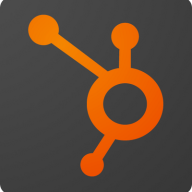

HubSpot CRM and HubSpot Sales Hub are key players in customer relationship management solutions. HubSpot CRM appears to have the upper hand in affordability and customer support, making it appealing for budget-conscious users, while HubSpot Sales Hub differentiates itself with a rich set of advanced features for larger enterprises.
Features: HubSpot CRM offers seamless contact management, efficient lead tracking, and user-friendly reporting capabilities. It integrates effortlessly with multiple tools, enhancing productivity. HubSpot Sales Hub excels in sales automation, customizable pipelines, and comprehensive forecasting, providing organizations with a strategic advantage in advanced sales management.
Room for Improvement: HubSpot CRM could enhance its marketing automation features and improve data import capabilities to better cater to advanced users. Additionally, expanding integration options would allow users to connect with a wider range of third-party platforms. HubSpot Sales Hub can improve by simplifying its user interface and reducing complexity in customization to facilitate ease of use. Enhancements in detailed analytics and feedback reporting features could also provide more in-depth insights for decision-makers.
Ease of Deployment and Customer Service: HubSpot CRM shines with its straightforward and quick deployment process, with users often praising its simplicity and effective onboarding experience. HubSpot Sales Hub, while also offering smooth deployment, requires more involved setup support for extensive feature configurations, catering efficiently to larger teams that require tailored solutions.
Pricing and ROI: HubSpot CRM offers a no-cost option, delivering significant ROI for small to medium-sized businesses, leveraging basic yet efficient CRM functionalities. Meanwhile, HubSpot Sales Hub, with a higher cost structure, justifies its investment with robust sales tools designed to enhance business growth potential, appealing to teams that require comprehensive sales management solutions.
Without it, we wouldn't be able to manage everything properly or strategically plan our sales strategy.
HubSpot's customer service is excellent and fast.
Many users give it only a couple of minutes before moving on, so there should be ways for quick, direct access and follow-up, which is currently somewhat challenging.
There is always an account rep that's available, and there is a technical account rep that is available for every account.
They consistently respond and provide solutions, though some limitations are inherent to the tool itself.
It is more difficult with the language in Portuguese, which complicates understanding other functions.
The community of HubSpot Sales Hub and information available in Google is sufficient enough to basically self-help myself.
Handling around 100 to 150 users is fine.
There are a lot of enterprises using it, however, even as a GTM for HubSpot, their target market is predominantly SMB.
HubSpot CRM is a scalable solution.
Regarding scalability, I think it's really well-designed; not to some enormous size, but it allowed us to start easily and then expand really.
For instance, out of 10,000 API requests, approximately 10 might get missed with absolutely no record of them.
I don't recall experiencing any outages or downtime with HubSpot Sales Hub.
HubSpot should establish some pre-deployable packages that, when contracted, offer basic functionality.
A better CRM can be achieved by providing more customization features.
The response time is slow.
The overall cost is relatively high compared to some alternatives available in the market.
The problem with the email tracking feature is that it recognizes auto-screening in email tools, which means HubSpot Sales Hub thinks an email opened by an end-user is actually an email that is screened, giving me false expectations.
HubSpot Sales Hub could be improved by being more affordable in other countries.
The sales component is somewhat expensive, making the overall cost higher compared to some other available options.
HubSpot stands out for its ease of use, especially with sequence creation compared to other CRM solutions.
The most valuable feature for me is when I encounter a company or a person, I can drop in their URL, and it pre-populates various details like address information and other contacts they might have.
The feature that I find valuable is the customer 360-degree view and the marketing automation.
The most important feature for us is the ability to plan workflows and integrate other systems manually, even without native connectivity.
The divisions for sales and the graphics are very customizable in HubSpot Sales Hub.
What I like about HubSpot Sales Hub the most is that it's complex in a good way, it has everything I need, it's well-integrated with other tools, and it's easy to integrate with.
| Product | Market Share (%) |
|---|---|
| HubSpot CRM | 1.1% |
| HubSpot Sales Hub | 1.0% |
| Other | 97.9% |


| Company Size | Count |
|---|---|
| Small Business | 39 |
| Midsize Enterprise | 5 |
| Large Enterprise | 8 |
| Company Size | Count |
|---|---|
| Small Business | 15 |
| Midsize Enterprise | 4 |
| Large Enterprise | 3 |
HubSpot CRM is a comprehensive customer relationship management software that helps businesses manage their sales, marketing, and customer service activities. It offers a wide range of features, including contact management, email tracking, deal tracking, and task management.
With its intuitive interface and easy-to-use tools, HubSpot CRM allows users to streamline their sales processes, track customer interactions, and improve overall productivity. It also integrates seamlessly with other HubSpot products, such as marketing automation and customer service, providing a complete solution for businesses of all sizes.
Whether you're a small startup or a large enterprise, HubSpot CRM can help you organize and grow your customer relationships.
Powerful Sales Software That Grows With You
Track how deals are progressing, organize all sales activity in one place, and accelerate sales cycles to close more deals, faster.
We monitor all CRM reviews to prevent fraudulent reviews and keep review quality high. We do not post reviews by company employees or direct competitors. We validate each review for authenticity via cross-reference with LinkedIn, and personal follow-up with the reviewer when necessary.